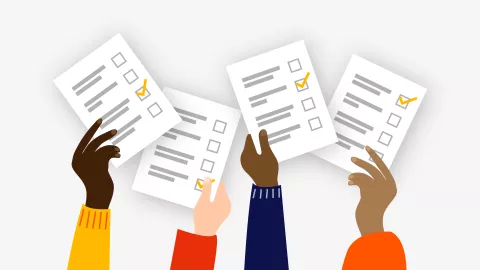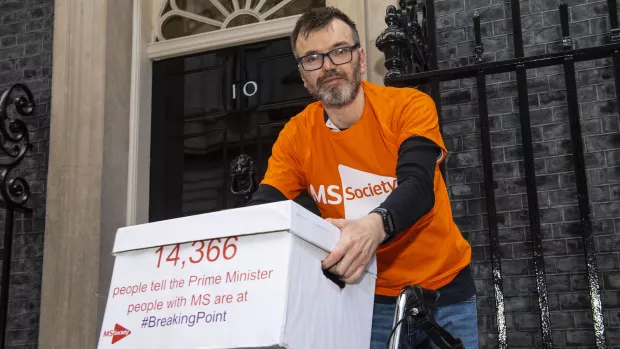
Have you checked if you’re eligible to vote in the UK general election?
A general election is expected to take place this year. Here’s what you need to know if you want to vote.
This year, we’re getting ready for a general election. At the moment, most people think the election will be in early May or in the autumn, but it could happen any date up to Tuesday 28 January 2025. The general election is an important opportunity to have our say on the issues which matter to us. It’s a chance to say who we want to represent us in the UK Parliament.
But if you want to vote, there are some important things you need to do. Below you can find information about who can vote and how to register to vote. As well as important new rules about voter identification.
Who can vote?
To vote in the general election, you must be:
- 18 years old or older on the day of the election
- Either a British citizen, a qualifying Commonwealth citizen or a citizen of the Republic of Ireland
- Resident at an address in the UK or Gibraltar
- Registered to vote
Prisoners, members of the House of Lords and people found guilty of electoral crimes aren’t allowed to vote.
If you live abroad and are a British citizen, you can also register to vote. This involves registering as an overseas voter.
You must be registered to vote on election day. Nobody is automatically registered to vote. If you’ve never registered, you’ve recently moved or you’ve changed your name or nationality, you’ll need to register.
How do I register to vote?
One option is to register to vote using the government’s online form. To do this, visit the website, scroll down and click the green “Start now” button. You’ll need your National Insurance number to complete the process.
You can also register to vote using a paper form. To do this, you have two options:
- Download and fill in a voter registration form here then send it to your local Electoral Registration Office
- Contact your local Electoral Registration Office, who can post you a paper form
Your local Electoral Registration office can provide support if you need assistance registering to vote.
Find and contact your local Electoral Registration office
What are the new voter identification rules?
The big change for this general election is the introduction of voter identification. To vote at your polling station, you must bring and present a valid photo identification (ID) upon arrival. This is in addition to registering to vote ahead of election day.
There are a range of identification documents that will be accepted by your polling station. These include (but aren’t limited to):
- Passport
- Driving licence (including provisional driving licence)
- A Blue Badge
- Disabled Person’s Bus Pass funded by the UK Government
- Scottish National Entitlement Card issued for the purpose of concessionary travel (including a 60+, disabled or under 22s bus pass)
- Disabled Person’s Welsh Concessionary Travel Card
View a full list of accepted ID documents from the Electoral Commission.
If your ID is expired you can still use it to vote. However, in this case polling station staff will only let you vote if they’re satisfied that you’re the person in the ID provided. So if your photo is very old or you look very different from your photo, this may be more difficult.
ID is also required for this year’s English local elections, Police and Crime Commissioner elections and Mayoral and London Assembly elections. These are all taking place on Thursday 2 May.
How do I vote if I don’t have any of the accepted forms of ID?
If you don’t have any of the accepted ID, you can apply for a free Voter Authority Certificate.
Learn how to apply for a Voter Authority Certificate on the Electoral Commission website
Please note that you’ll need to register to vote before applying for a Voter Authority Certificate, if you haven’t already.
The deadline to apply for a Voter Authority Certificate is six working days before any election. But it’s better to apply as early as possible.




